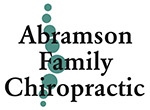Posts by brady anderson
Try Chiropractic First for Low Back Pain!
A review of Medicare claims data concerning 3,042 older adults treated for an acute episode of low back pain revealed that those who initially received nonpharmacologic therapies—such as chiropractic care—were 87% less likely to subsequently be hospitalized in relation to an opioid overdose. Journal of Integrative and Complementary Medicine, April 2025 Narcolepsy Linked to Elevated…
Read MoreHelp in Predicting Which Whiplash Patients Will Develop Chronic Pain
It’s estimated that roughly half of patients with whiplash associated disorders will develop chronic symptoms that can persist for a year or longer. A recent study involving 203 whiplash patients found that individuals with moderate-to-severe neck pain lasting two-to-six weeks after the incident and those experiencing pain beyond the neck were significantly more likely to…
Read MoreTreatment for Chronic Low Back Pain
Among a group of 40 chronic low back pain patients, researchers observed that a single session of myofascial release technique—a manual therapy that involves applying sustained, gentle pressure to the myofascial connective tissue—resulted in immediate improvements in low back pain and flexibility. Doctors of chiropractic often use myofascial release and other manual therapies when managing…
Read MoreGuidelines for Managing Spinal Pain
A recent systematic review that included 30 clinical practice guidelines for the nonpharmacological, nonsurgical management of spine pain revealed that patient education, therapeutic exercises, and manual therapies are effective treatment options, especially when combined in a multimodal treatment approach. Doctors of chiropractic use these and many of the therapies in the management of spinal pain.…
Read MoreMonthly Pain Update – May 2025
X-Rays for Seniors with Chronic Low Back Pain Chronic low back pain is a common condition that becomes even more prevalent with age. By some estimates, it may affect nearly 3 in 4 older adults each year. As individuals aged 65 and older continue to make up a growing share of the global population, chronic…
Read MoreCost-Effective Therapies for Spine Pain
A meta-review of eleven systematic reviews found that manual therapies—including chiropractic treatments like spinal manipulative therapy—are likely more cost-effective for the management of spine pain than usual medical care. Physiotherapy Theory and Practice, March 2025 Gambling Addiction Searches Soar with Legal Sports Betting In the wake of a 2018 Supreme Court decision in the United…
Read MoreHistory of Low Back Pain Can Affect a Batter’s Swing
Examinations of 25 collegiate baseball players revealed that those with a history of low back pain exhibited altered pelvic and trunk movement patterns during their swing, reducing their ability to transfer rotational energy from the lower body to the upper extremities. This may not only negatively affect performance, but it may also increase their risk…
Read MoreCarpal Tunnel Syndrome May Affect Nerve Function Preceding the Wrist
Carpal tunnel syndrome (CTS) is long associated with symptoms in the hands and fingers due to compression of the median nerve as it passes through the wrist. In a recent study that included 120 adults, 80 with diagnosed CTS, researchers observed 27.45% of CTS patients also experience impaired nerve function extending from the wrist toward…
Read MoreTry Chiropractic Care for Tension-Type Headache First
Tension-type headache is a common form of headache characterized by a dull, aching pain and tightness or pressure around the forehead or back of the head and neck. A recent study that compared outcomes of 6,232 tension-type headache patients revealed that those initially treated with spinal manipulative therapy—the primary form of treatment provided by chiropractors—were…
Read MoreMonthly Pain Update – April 2025
The Gut Microbiome and Degenerative Disk Disease Degenerative disk disease (DDD) is a condition where the intervertebral disks gradually break down leading to pain, stiffness, and reduced flexibility in the spine. While DDD is influenced by factors such as aging, mechanical stress, obesity, inflammation, trauma, and genetics, the exact mechanism that triggers the condition is…
Read More








